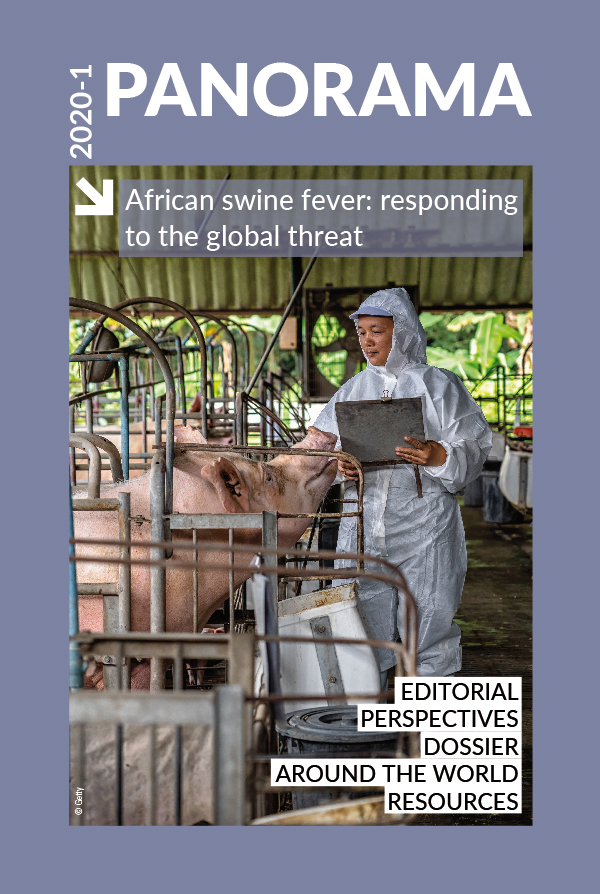Dossier Posted on 2020-07-07 10:29:55
Border control measures to prevent the introduction of ASF
Lessons from the Japanese experience
Keywords
Authors
S. Kondo (1)*, K. Ito (2) & N. Kumagai (1)
(1) Animal Health Division, Food Safety and Consumer Affairs Bureau, Ministry of Agriculture, Forestry and Fisheries, Japan.
(2) Animal Quarantine Service, Ministry of Agriculture, Forestry and Fisheries, Japan.
* Corresponding author: animal_health88@maff.go.jp
The designations and denominations employed and the presentation of the material in this article do not imply the expression of any opinion whatsoever on the part of the OIE concerning the legal status of any country, territory, city or area or of its authorities, or concerning the delimitation of its frontiers and boundaries.
The views expressed in this article are solely the responsibility of the author(s). The mention of specific companies or products of manufacturers, whether or not these have been patented, does not imply that these have been endorsed or recommended by the OIE in preference to others of a similar nature that are not mentioned.
The transmission of viruses, including ASF virus (ASFV), is often mediated by humans, and one of the major pathways of the global spread of ASF is the international movement of people and goods. As of 26 December 2019, the Animal Quarantine Service (AQS) of Japan had detected 86 pork products that tested positive for ASFV by polymerase chain reaction (PCR) in passenger luggage from ASF-affected countries, and live virus was isolated from two of these. This demonstrates the extremely high risk of ASF incursion by such pathways into ASF-free countries (including Japan), and the urgent need for strict border control measures.
Measures are required both before departure and on arrival to effectively prevent the introduction of ASF. To achieve this, concerted efforts and close collaboration between public- and private-sector stakeholders is of the utmost importance.
Collaboration with relevant organisations for effective risk communication
Collaboration with relevant organisations is key to reaching various types of international travellers, to urge them to neither bring in, nor take out, any prohibited items on arrival or departure. Embassies, airlines and travel agencies have good access to international travellers. Japan has requested airlines to make an in-flight announcement and show posters at check-in counters. Collaboration is also taking place with relevant organisations to inform foreign workers and international students coming to Japan. Foreign postal services have been notified through the Universal Postal Union.
Border control measures at the port of entry
To implement border control measures on arrival, Japan has increased the number of detector dogs and animal quarantine officers to detect the illegal entry of animal products. With the close cooperation of the Customs Office, the livestock products declaration form has been revised to increase the visibility of prohibited animal products that require a passenger declaration. In addition, penalties for the illegal transport of prohibited animal products are now more stringently enforced, especially for malicious or repeated cases.
| More information is available from the website of the Animal Quarantine Service of Japan (AQS) |
http://dx.doi.org/10.20506/bull.2020.1.3127










